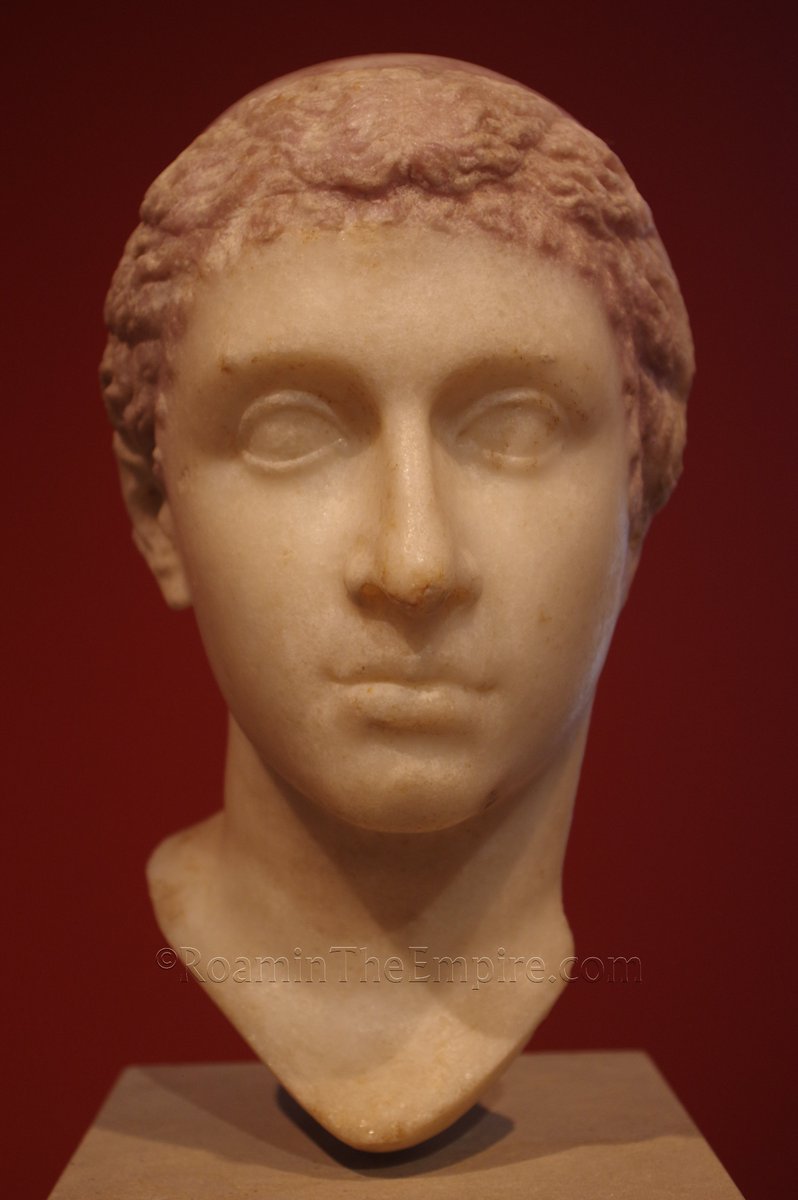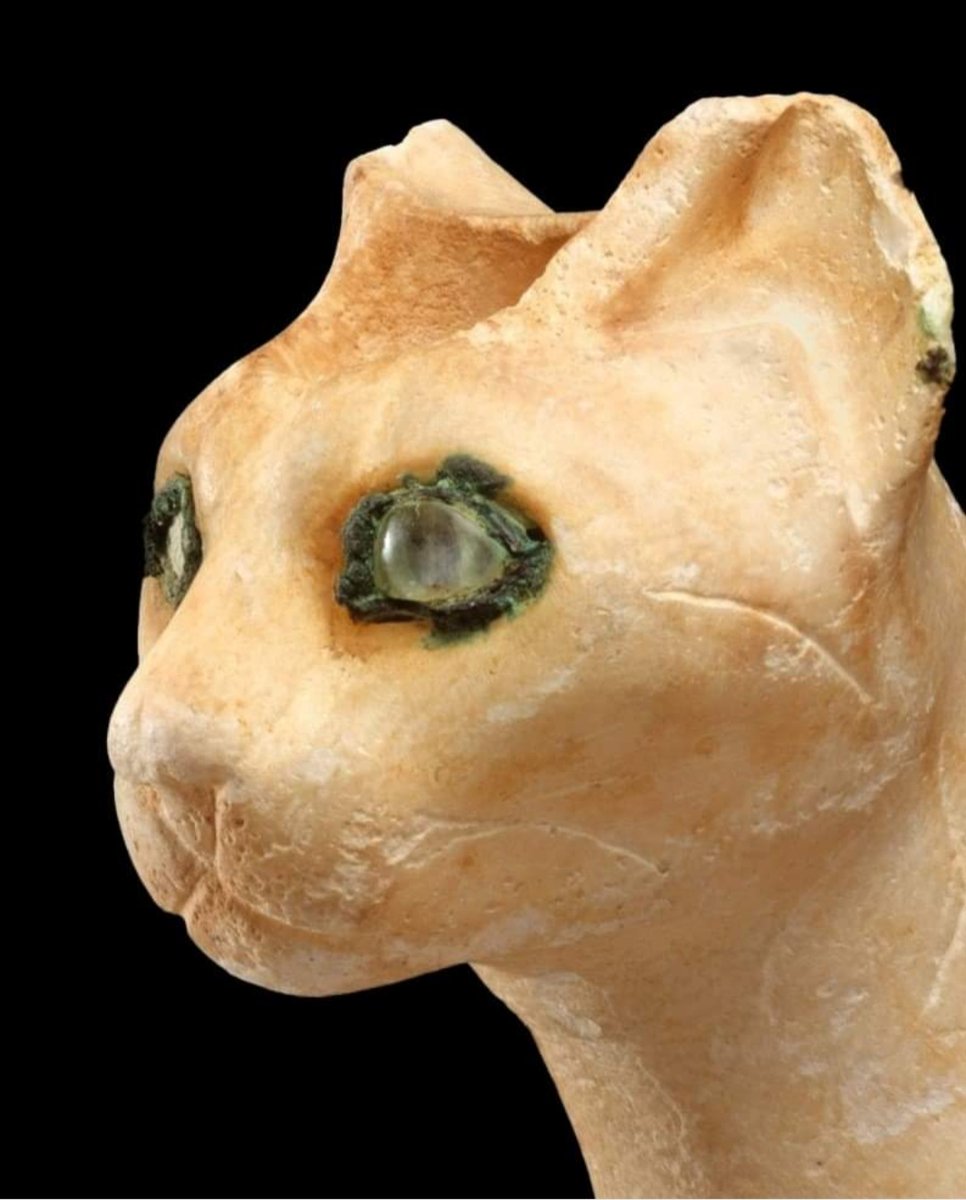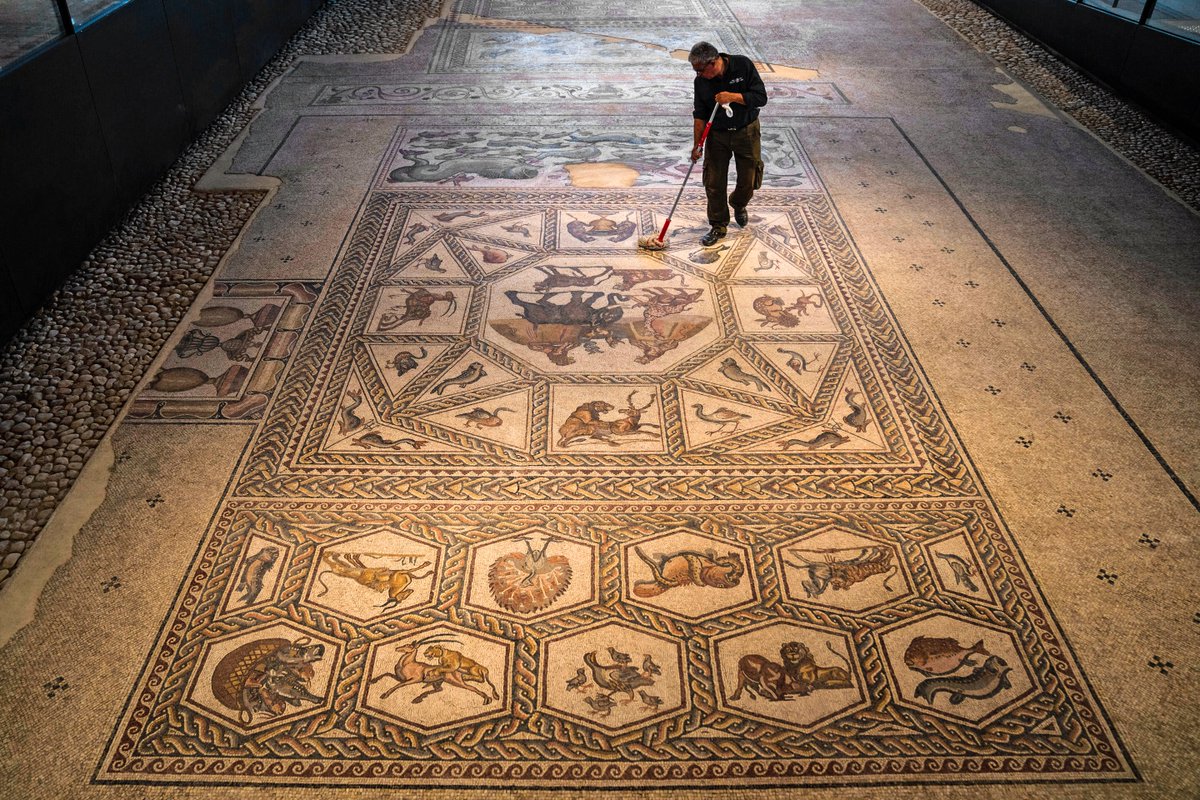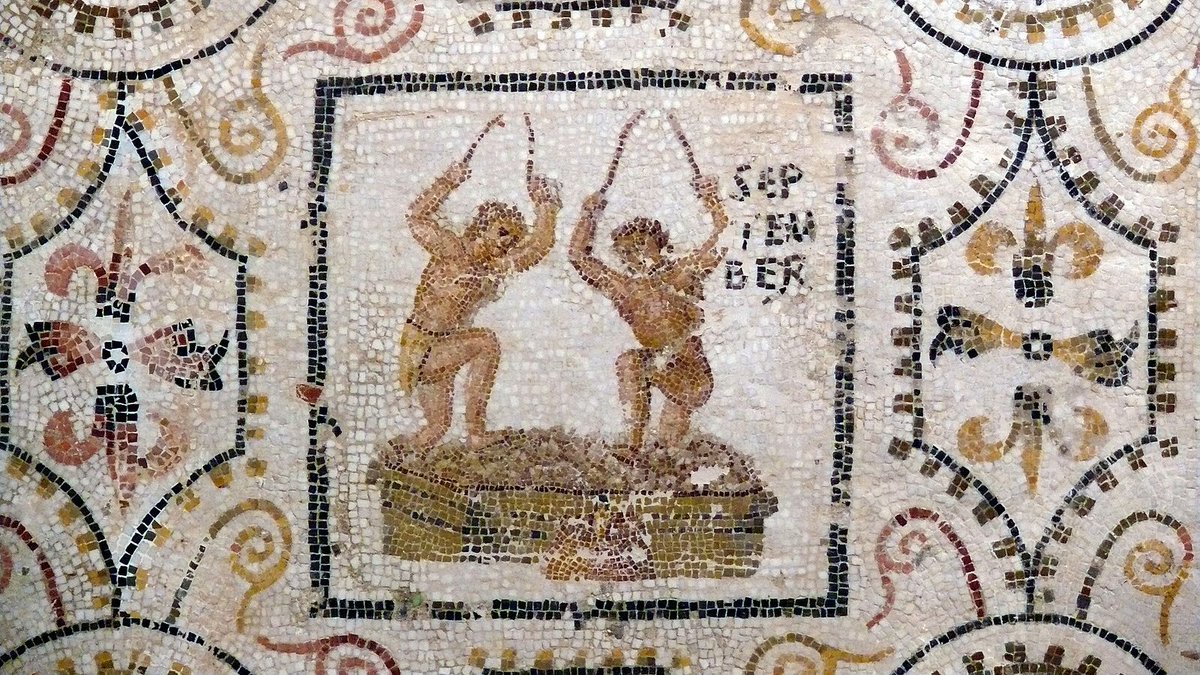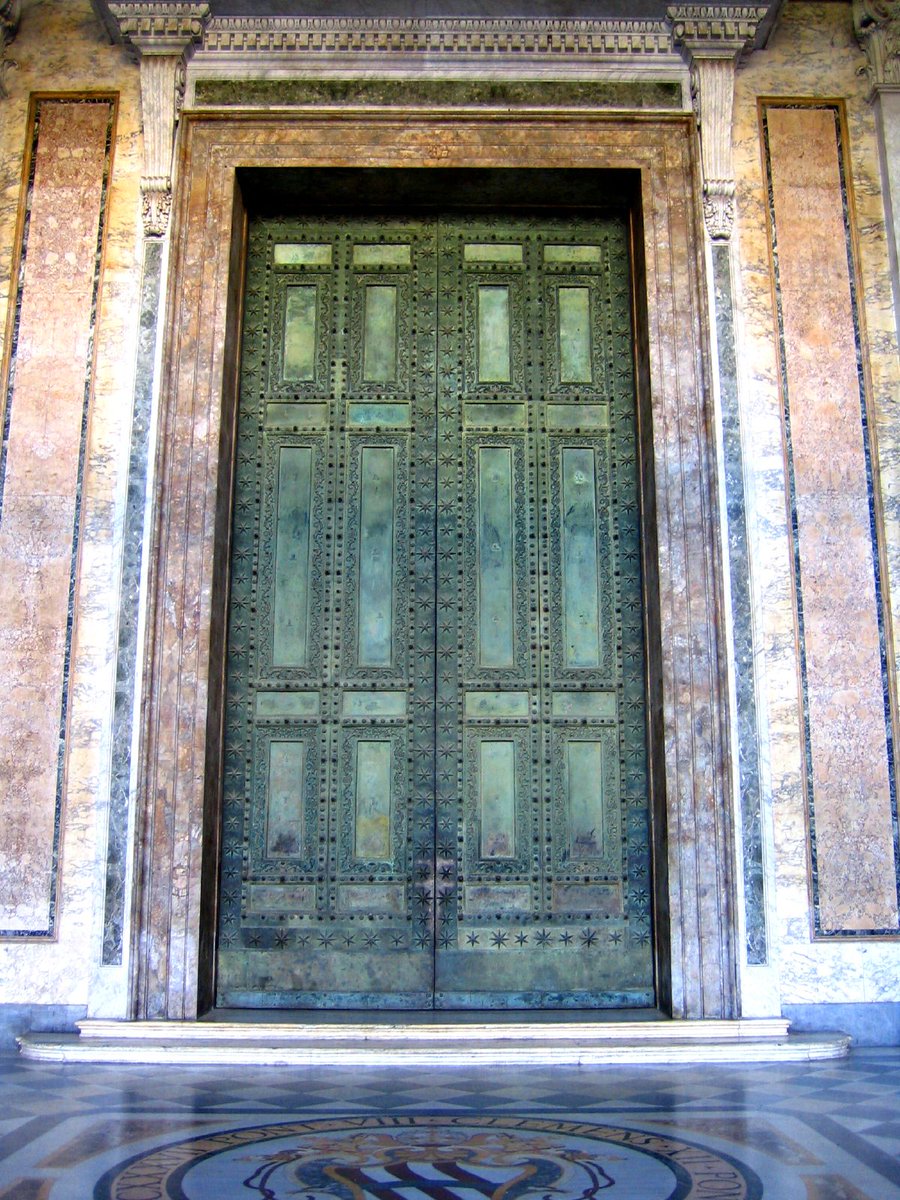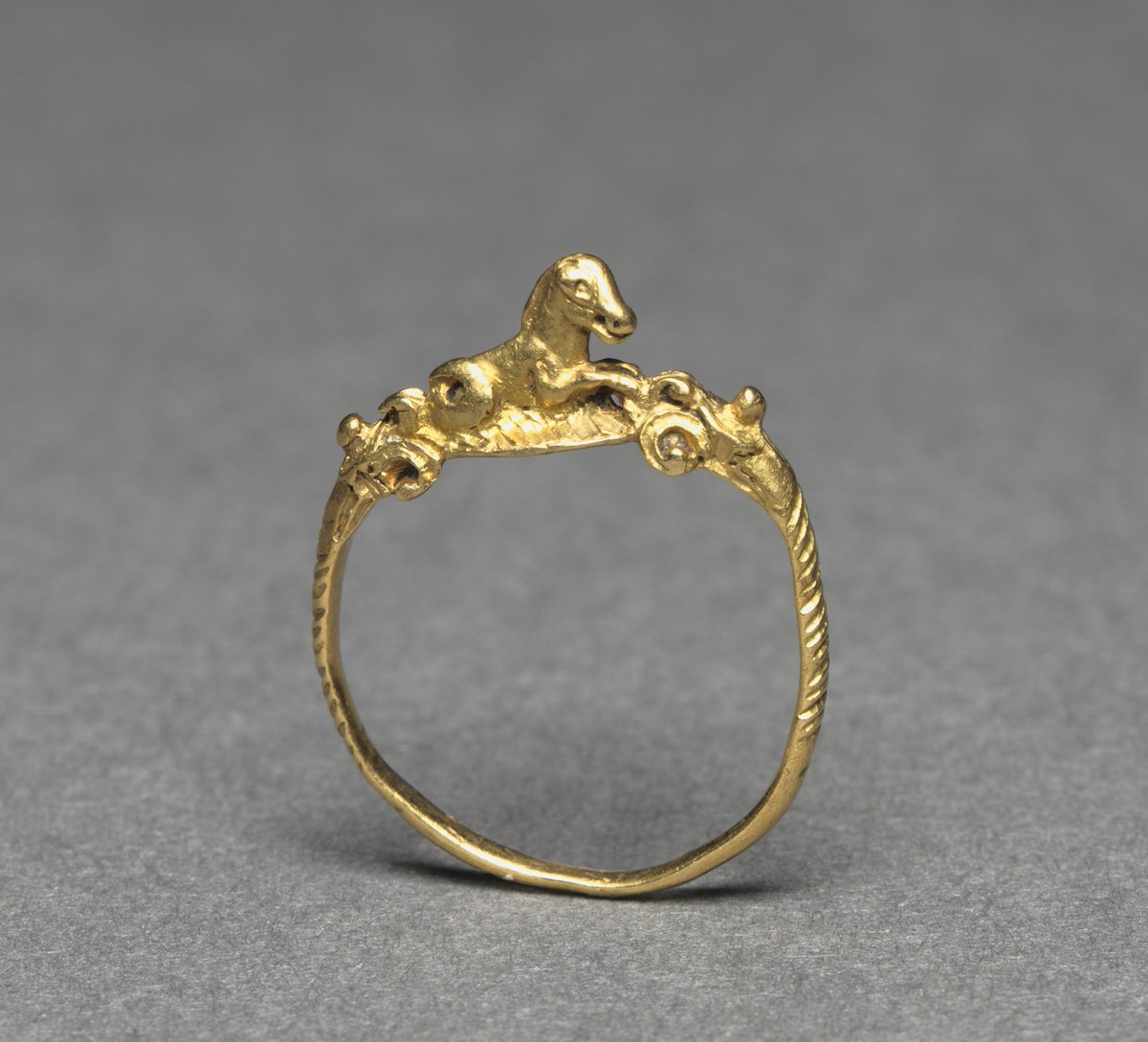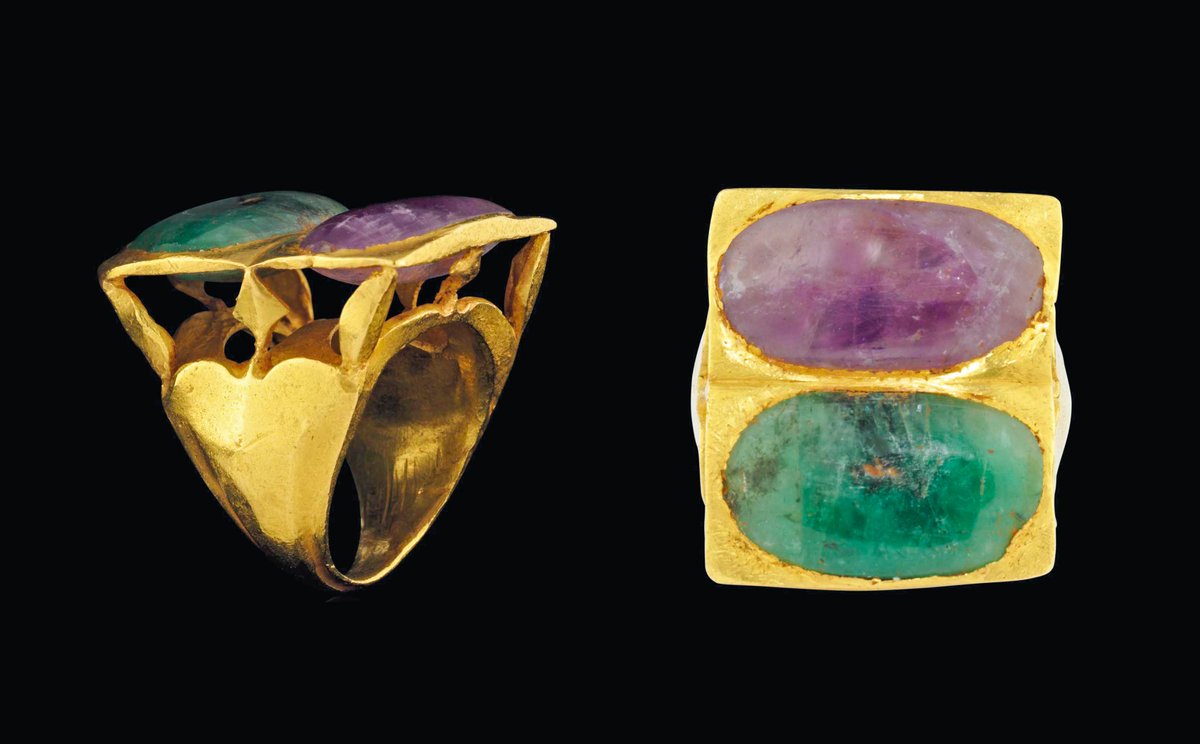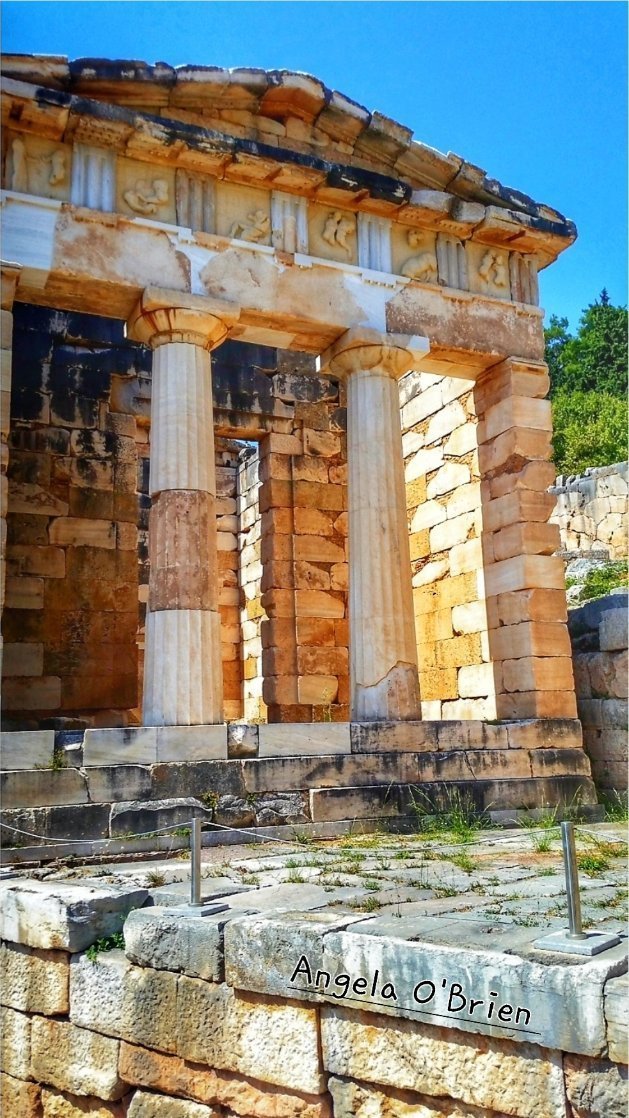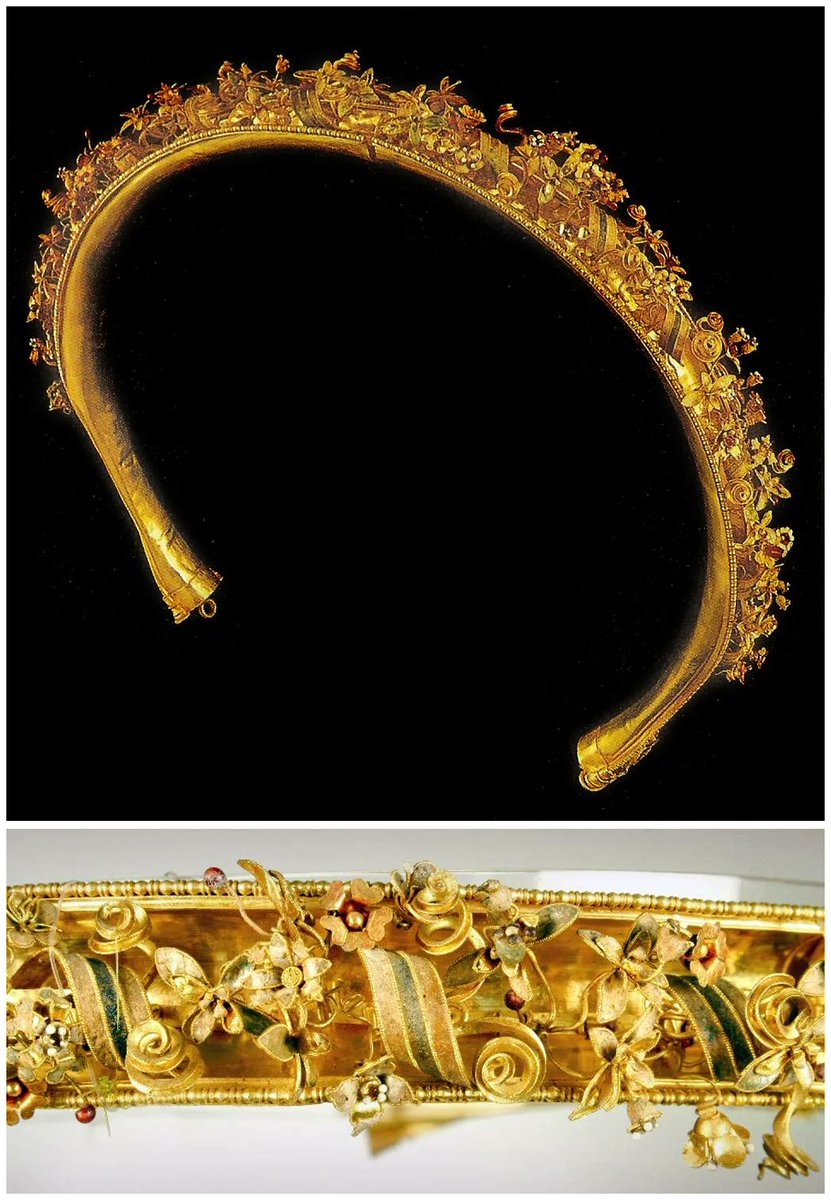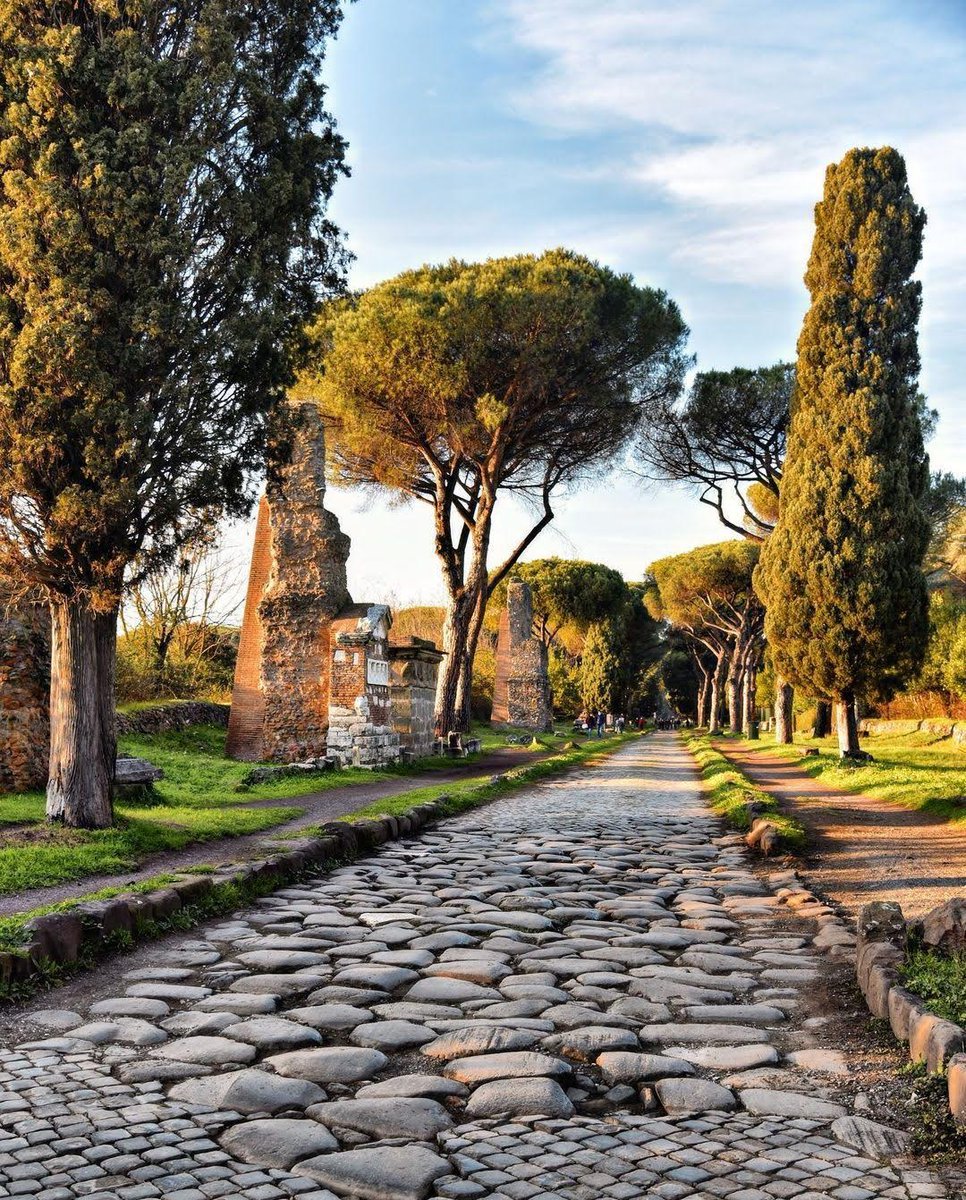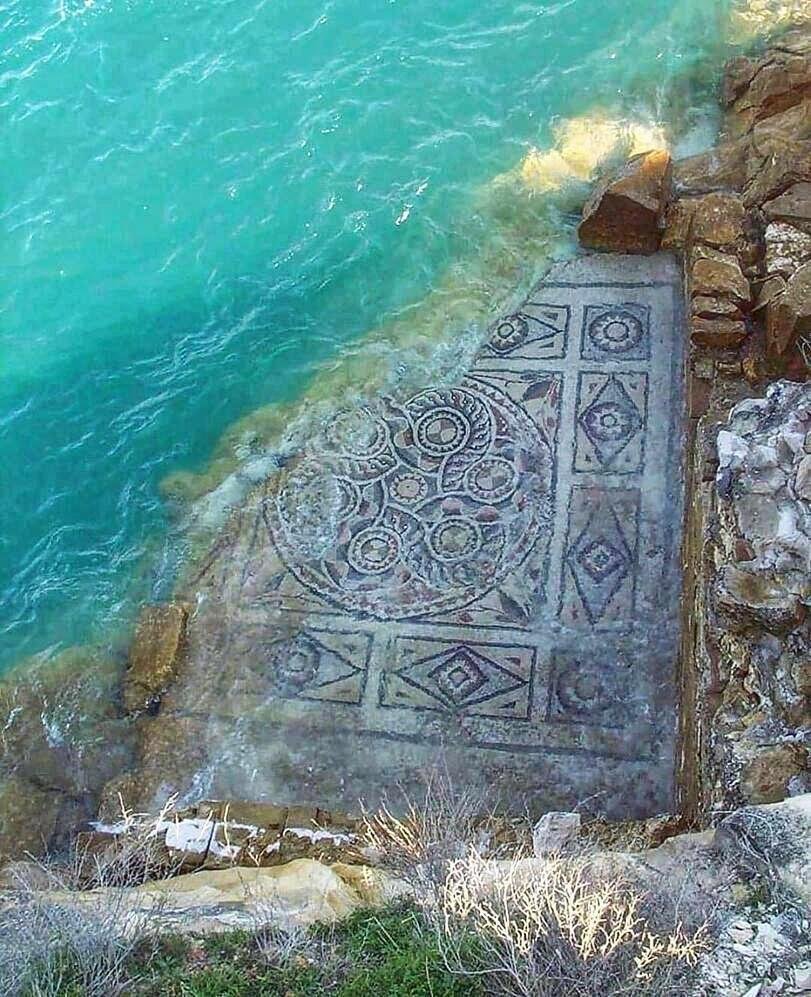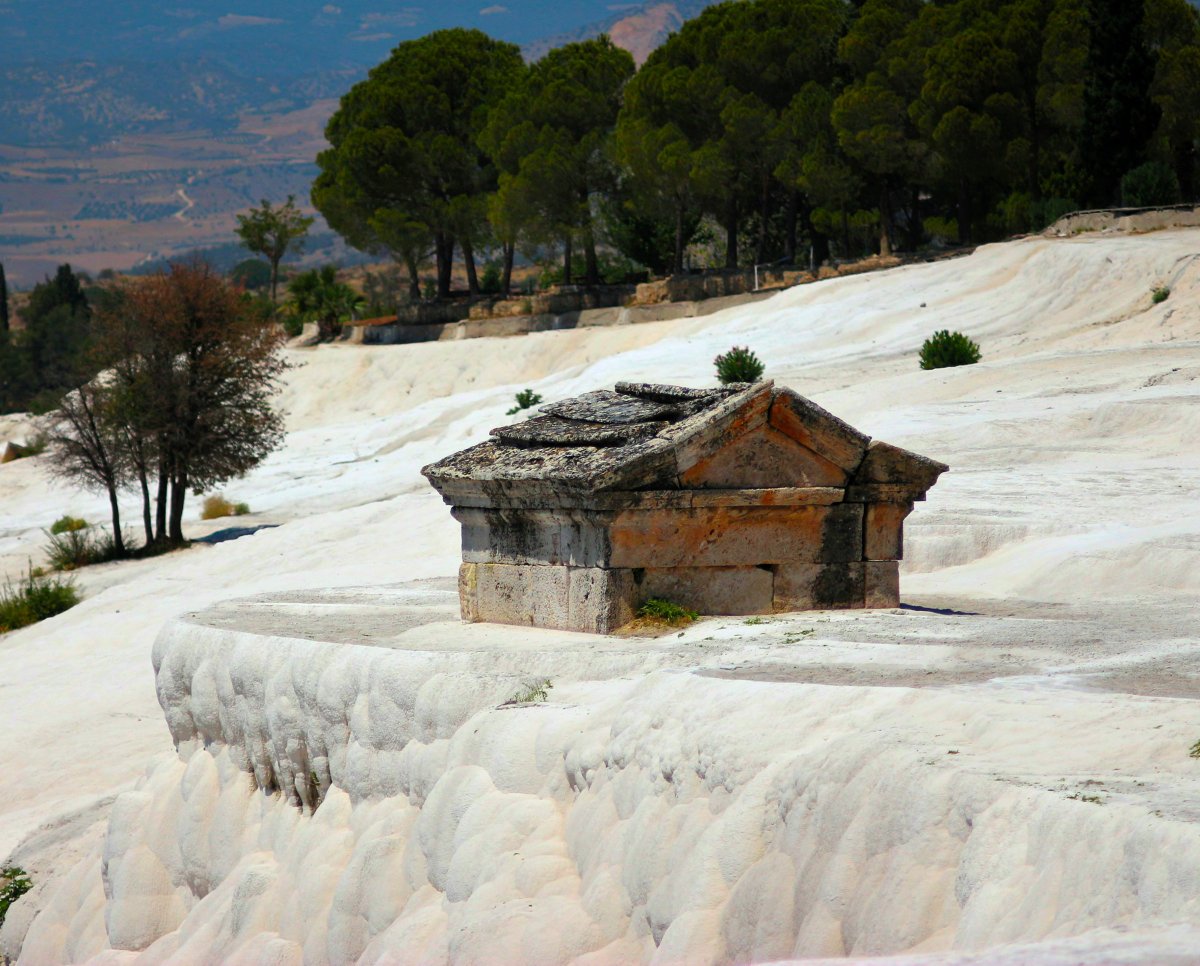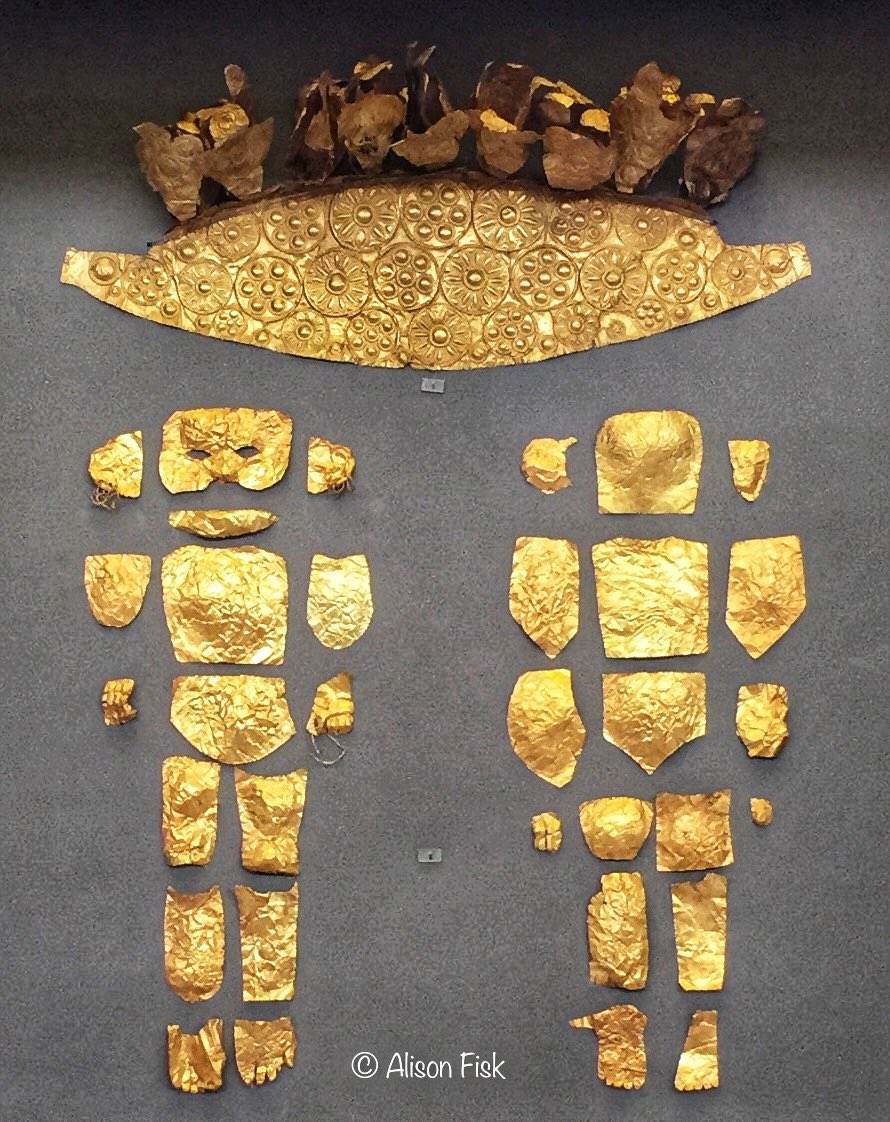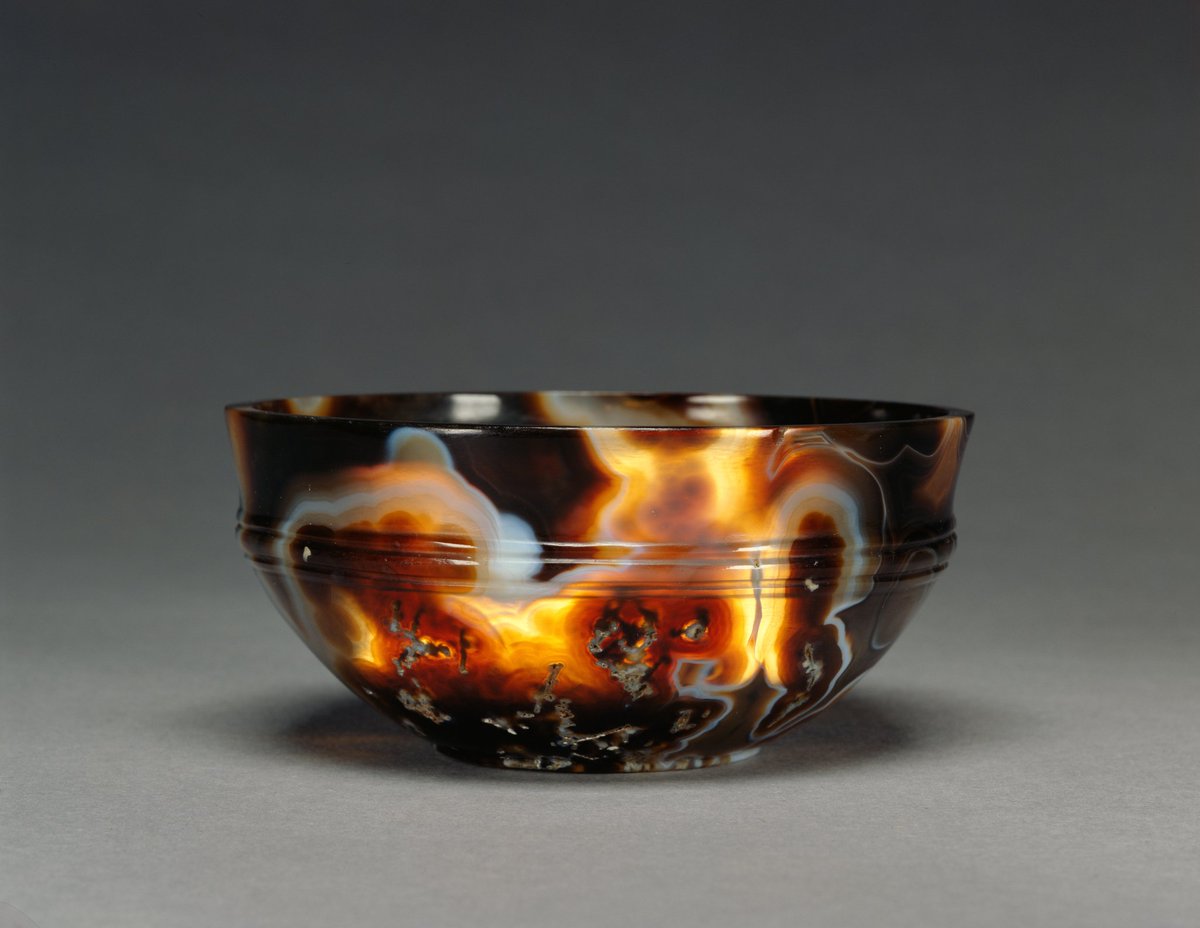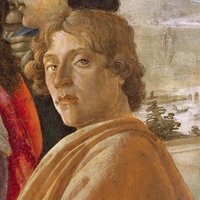
Symmachus 📜🏺
@Symmach_
All things Archaeology, History and Art🏺 • Greece & Rome 🏛️ • Former Archaeologist • History MA • Trainee Teacher • Formerly The Classical Compendium
ID:1346461844496498688
https://www.etsy.com/uk/shop/ClassicalCompendium 05-01-2021 14:21:45
4,8K Tweets
66,6K Followers
267 Following

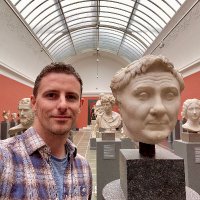

#FrescoFriday - Fragment of wall painting depicting a satyr and a maenad. From the House of Caecilius Jucundus in Pompeii.
Naples National Archaeological Museum.
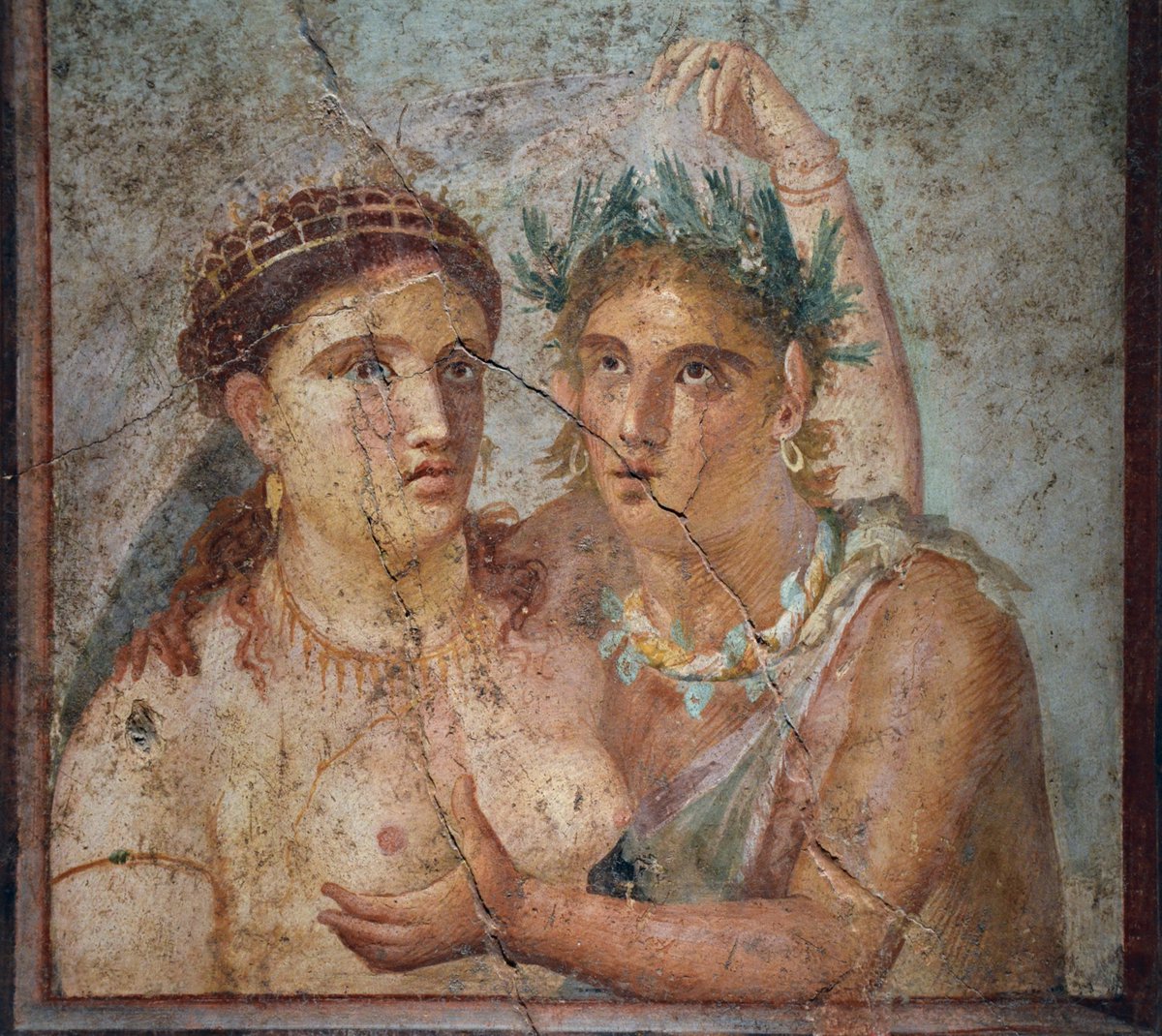


An adorable ancient Egyptian otter statue!
Dating to c. 640 - 30 BCE, it depicts a bronze otter on its hindlegs, forepaws raised in praise of the sun. The solar disc of Ra rests upon its head.
🏛️The Metropolitan Museum of Art
#Egypt #Archaeology #Art #Classics #History




Given the popularity of the fantastic #baldursgate , here's a D20 from 2,200 years ago!
This greenstone die is inscribed with the Greek alphabet, from alpha to upsilon.
Whilst its purpose is unknown, it may relate to board games or religious divination.
🏛️The Metropolitan Museum of Art
#History
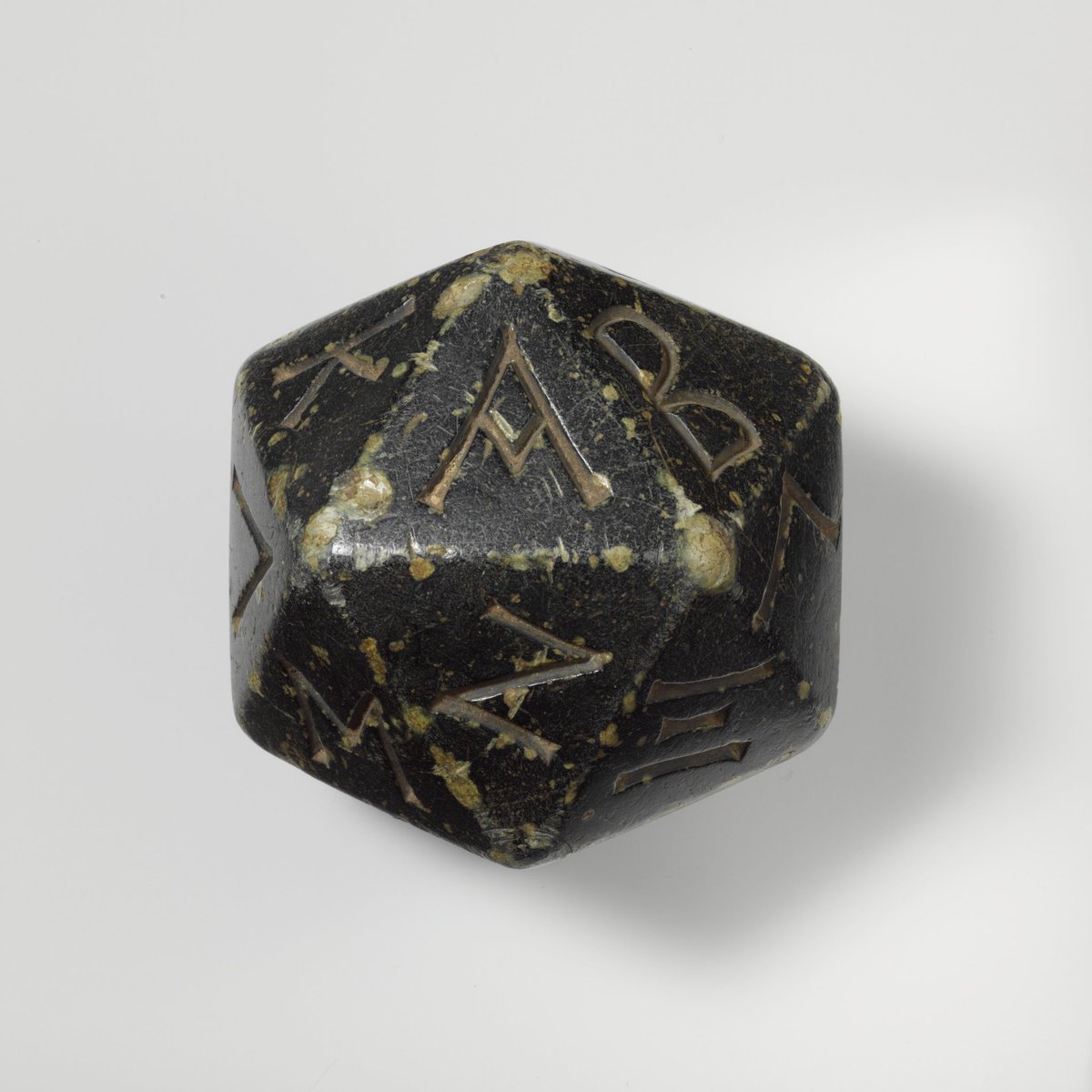

This beautiful #Roman enamelled copper alloy flask in hexagonal shape was found in Welzheim at the Limes, the Roman frontier. The small vessel was a product of a workshop in Britain or Gaul and was presumably used to hold perfume.
#romanarchaeology
Photo: Archäologisches Landesmuseum Baden-Württemberg
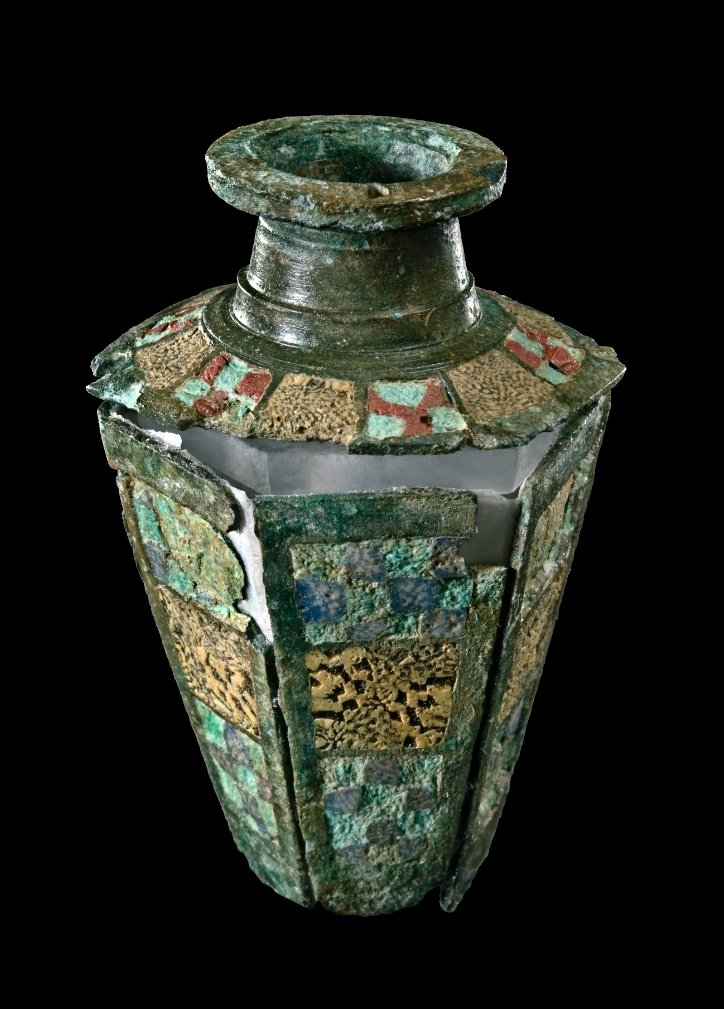



A bizarrely bent ancient bronze sword from Oss in the Netherlands.
Found in the urn burial of a 'prince', it dates to c. 800 - 500 BCE. It may have been bent to deter graverobbers, or simply to fit in the urn.
🏛️Rijksmuseum van Oudheden
#Celtic #Netherlands #Art #History #Archaeology


An exquisite Egyptian broad collar, worn by one of the three wives of Pharaoh Thutmose III.
Dating to the New Kingdom (c. 1,479 – 1,425 BCE), it is made of gold, carnelian and obsidian, and adorned with falcon-headed terminals.
🏛️The Metropolitan Museum of Art
#Ancient #Egypt #History #Art
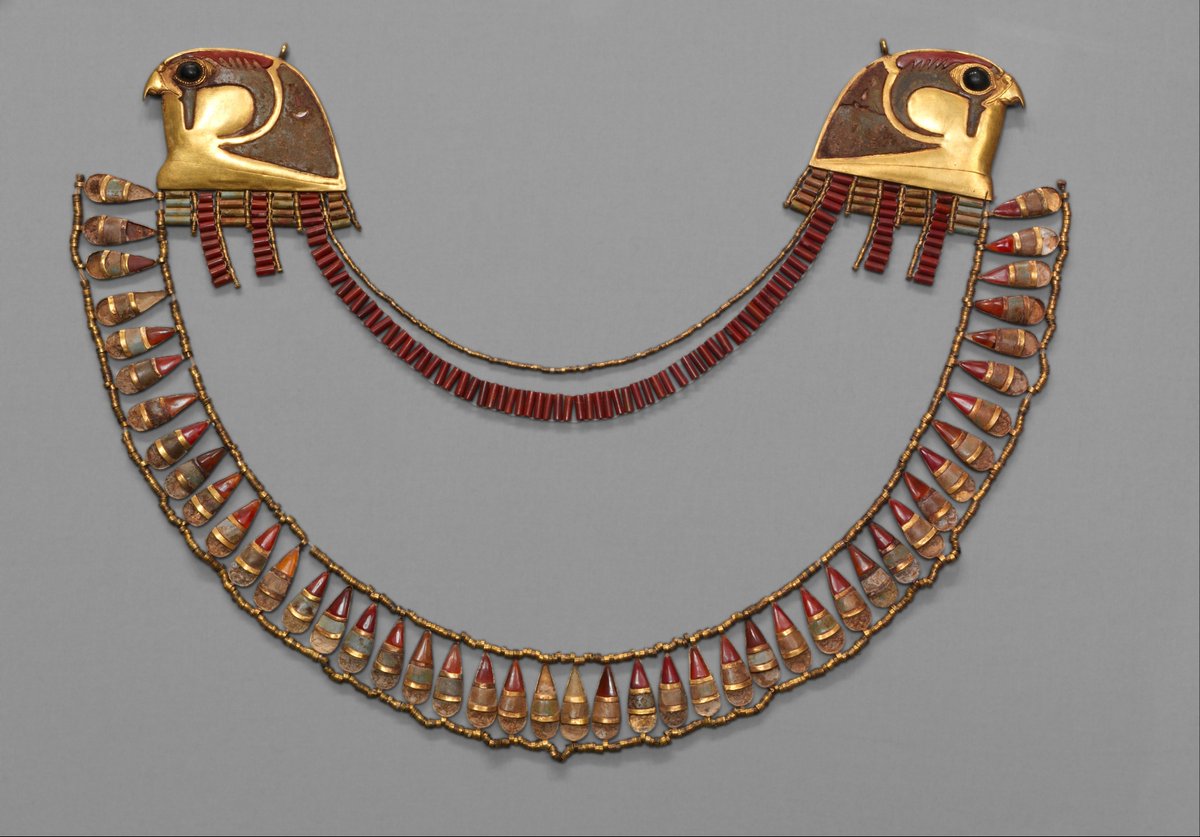

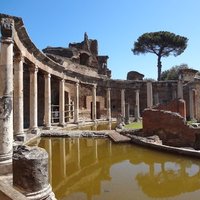
#OnThisDay in 30 BCE (also sometimes given as August 10th), Cleopatra VII Thea Philopator commits suicide in Alexandria. From the Altes Museum in #Berlin , a bust of Cleopatra from along the Via Appia near Genzano. Dated to 40-30 BCE.
#Archaeology #RomanArchaeology
